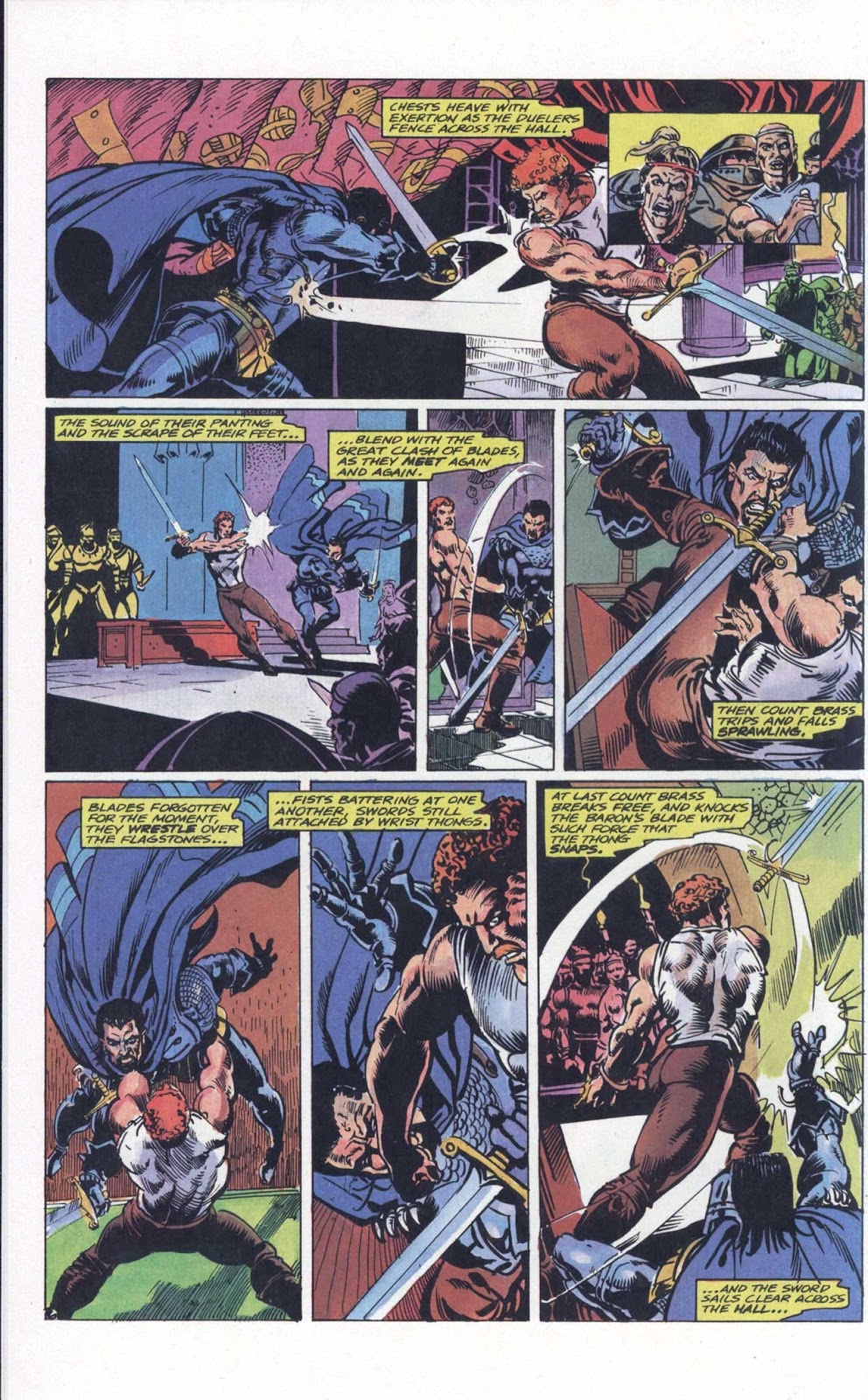

The question of Hawkmoons falling in love with the daughter of the ruler of Karmag, and his pledging allegiance to the nation feels very much in the vein of a fairytale allegory of political allegiances. The characters are very sketchily outlined, and although we see Dorian fall in love and embark upon an epic quest we don't really know much of Hawkmoons internal life.

The walls of the multiverse grow thin and stranger things step across the dimensions. Other encounters with the weird, such as the ghostly elfin inhabitants of ancient cities aren't quite as successful, and seem a little out of place in an otherwise earth-bound fantasy sequence.

There certainly are high-points of effective prose - pirate cultists carrying out a grisley ritual, and Hawkmoons summoning a legion of undead legion of southern barbarians using his Sword of the Dawn is evoked with a deftness and weirdness that is striking. Some attitudes may have changed since then, but it doesn't feel revolutionary, small minded nationalism is still the province of the hysterical far-right rather than an ingrained status-quo. Moorcocks reflects on the writing of Hawkmoon in an article at tor.com - British nationalism and anti-German sentiment of the Britain in the 1960s (especially from the editors of pulp fiction and war comics he was writing for) and Hawkmoon as a construction of a German saving a small French dominion (and then subsequently the entire world) from an evil British Empire, being a direct overturning of the conservative values and an intentionally countercultural move. Maybe living in a post-truth, post-brexit, economically and culturally insecure Britain of the 21st century, the idea of the island of Granbretan (Great Britain) invading and unifying mainland Europe by force with legions of animal masked warriors fails to resonate all that much. I found it slightly grating and lacking the spark of sardonic wit and psychedelic verve that accompanies Moorcocks other stories, but then I've never liked The Beatles. These references are just an incidental gloss rather than being used for amusing the or satirical effect. Then there's Hawkmoons world, which for all intents and puropses is a post-post-apocalyptic Earth, with clear references to real world place names, and people - notably figures from the pre-catastrophy 1960s such as The Beatles and Harold Wilson.


 0 kommentar(er)
0 kommentar(er)
